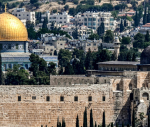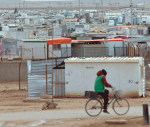You are here
‘Where are our plans?’
Feb 09,2017 - Last updated at Feb 09,2017
Throughout the years of the “Arab Spring”, from January 2011 to the present, we have heard a lot about “plans” for our region by either foreign players from beyond the region or non-Arab players from the region itself.
Until now, in fact, with each and every major development, we hear about more such plans.
Over the past few years, for example, many spoke in detail, complete with maps, about the division of Iraq along sectarian lines, portraying the matter not only a possible or imminent, but as inevitable.
We heard the exact same thing about Libya, Yemen and Syria.
And many have been speaking about plans for the Arab world as a whole; another “Sykes-Picot” agreement.
Until now, of course, none of the plans materialised.
But this does not seem to matter, as many in our part of the world —media people, politicians, writers, ordinary citizens — are prone, even conditioned, to such thinking.
The question no one is asking, at least not seriously, is: What are the Arab plans for the Arab region?
Such a question is not asked for a variety of reasons that are well-known, they say: the imperialists and the Zionists are so mighty they can impose anything they want; the Arabs are fragmented and weak; more emerging powers from the region and beyond are after us; etc.
Of course, none of these things are true.
No country or power in the world is invincible, especially when there is resistance.
And no country or nation is without will or resolve. The Arab world is not an exception.
If some powers in the world plan, scheme or conspire, it does not mean that they will automatically succeed and that we should automatically give in.
There is a lot the Arabs can do, and should do, in the face of such plans, schemes and conspiracies.
The fact that Iraq, Libya, Yemen and Syria are not divided along the lines the conspiracy theory advocates talk about is an example of the fallacy of such thinking.
And even if any or all of these countries get divided, this would not happen without the consent and active involvement of the peoples of these nations.
This is the main point to stress here. Nothing can happen to us that is schemed or planned by others if we ourselves are not — directly or unwittingly — allowing it to happen.
What is needed now — amidst all this tall talk about others’ plans or schemes for our region — is our own plan or scheme.
Where are our plans?
Perhaps the Arab summit, which will be held in Amman soon, could make this matter a priority and a reality.
It should.













